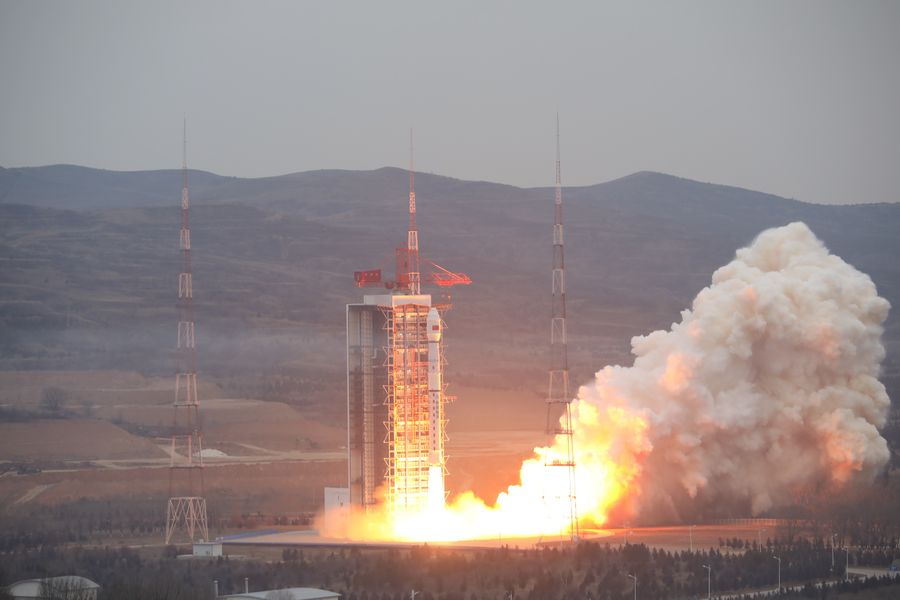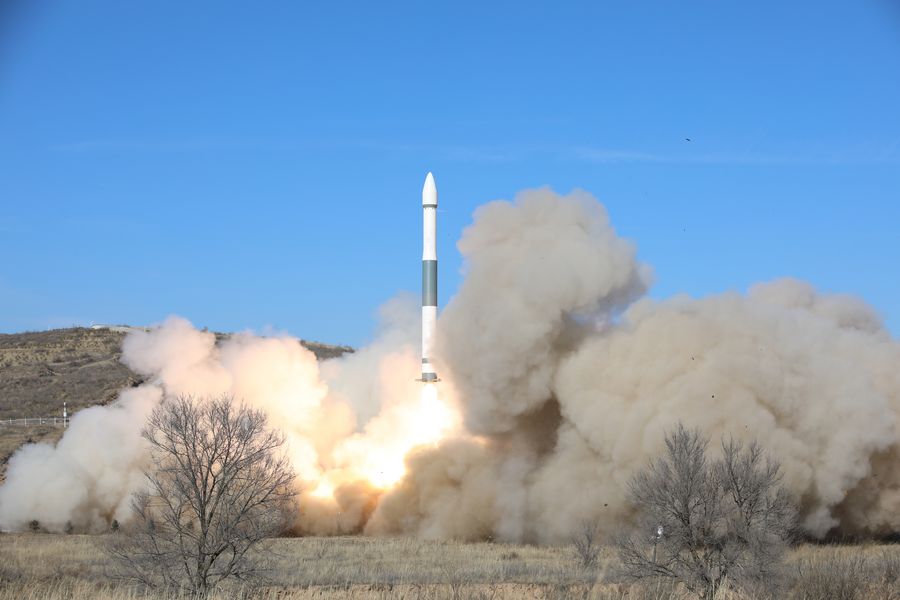
An earth observation satellite, Gaofen-12, is launched aboard a Long March-4C rocket from the Taiyuan Satellite Launch Center in Taiyuan, capital of north China's Shanxi Province, Nov. 28, 2019. (Xinhua/Zheng Taotao)
Six satellites were launched into space at once by a Kuaizhou-1A (KZ-1A) rocket from the Taiyuan Satellite Launch Center in north China's Shanxi Province Saturday.
TAIYUAN, Dec. 7 (Xinhua) -- China sent six satellites into space from the Taiyuan Satellite Launch Center in northern Shanxi Province at 4:52 p.m. Saturday (Beijing Time).
They were launched by a Kuaizhou-1A (KZ-1A) rocket and have entered the planned orbit successfully.
It was the second launch from the Taiyuan launch center in less than six hours after another KZ-1A rocket sent the Jilin-1 Gaofen 02B satellite into space at 10:55 a.m., setting a new record for China's aerospace industry.
It also marked a breakthrough for the Taiyuan Satellite Launch Center in its rapid launch and emergency launch capabilities.

The Jilin-1 Gaofen 02B satellite, which belongs to the Jilin-1 satellite family, is launched with Kuaizhou-1A (KZ-1A) from the Taiyuan Satellite Launch Center in north China's Shanxi Province Dec. 7, 2019. The new optical remote sensing satellite will form a network with the 14 previously launched Jilin-1 satellites, providing remote sensing data and services for agriculture, forestry, resources and environment. (Xinhua/Zheng Taotao)
The satellites HEAD-2A and HEAD-2B were the first batch of satellites for the Skywalker Constellation, which was developed by Beijing-based HEAD Aerospace Technology Co. Ltd. They will provide global users with services such as environmental monitoring, material supervision, emergency communication enhancement and information collection on global ships and aircraft.
Developed by Spacety Co., Ltd. based in Changsha, Hunan Province, the Spacety-16 and Spacety-17 satellites are medium-resolution micro-nano remote sensing satellites that are mainly used for disaster prevention, maritime applications, agricultural remote sensing and polar environment monitoring.
Tianqi-4A and Tianqi-4B satellites developed by a Beijing-base high-tech company are low-orbit satellites. They will provide services such as global Internet of Things data transmission, emergency communications and material tracking.
KZ-1A is a low-cost solid-fuel carrier rocket with high reliability and a short preparation period. The rocket, developed by a company under the China Aerospace Science and Industry Corporation, is mainly used to launch low-orbit microsatellites. ■



